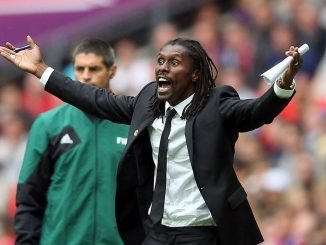
Dakar, Senegal | By Michael Wandati | Bassirou Diomaye Faye, the recently elected President of Senegal, took the oath of office on Tuesday 2, April 2024 as the nation’s fifth and youngest president ever, in Diamniadio, situated 30 kilometers from Dakar, the nation’s capital. Faye will serve a five-year term.
The 44-year-old former tax inspector defeated Amadou Ba, the candidate of outgoing President Macky Sall’s ruling coalition, by a landslide in the first round of voting, reflecting high hopes for change in the country of around 18 million.
“The results of the election showed a profound desire for change,” Faye said after taking the oath of office at a ceremony he attended with his two wives.
The inauguration was attended by more than a dozen heads of state and regional representatives. Among them were President Bola Tinubu of Nigeria, President Nana Akufo-Addo of Ghana, and Moussa Faki Mahamat, Chairperson of the African Union Commission.

Additionally, representatives from the military juntas of Burkina Faso, Mali, and Niger were also present.
The smooth transition provided a welcome relief following three years of significant political upheaval in Senegal. This period had raised concerns about potential democratic regression in the region, which is prone to coups, particularly in West Africa. In some instances, juntas have taken control and shifted alliances away from traditional Western partners towards Russia.
“Senegal will be a country of hope, at peace, with an independent justice system and a stronger democracy,” Faye said, promising to manage affairs ethically and to build the economy.

Millions of citizens patiently queued for hours to exercise their right to vote in an election held on March 24. Prior to this date, there were several unsuccessful attempts by Sall’s government to postpone the election initially planned for February, then later suggested for December, and subsequently June.
The decision sparked growing frustration towards President Sall, whose popularity waned during his second term due to economic challenges, increased suppression of dissent, and fears of potential manipulation of the constitution to seek a third term.
This frustration crystallized around the prosecution of outspoken opposition figure Ousmane Sonko, who finished third in the 2019 election but was disqualified from running again due to a defamation conviction. Sonko maintains his innocence.
“I will work towards preserving peace and national cohesion and make sure we preserve our most cherished resource, our national stability,” Faye said.

Despite facing challenges, Sonko endorsed his close associate Faye from prison after Faye’s candidacy was rejected. Faye himself was detained at the time on various charges, including defamation, which he denies.
Both Faye and Sonko were released from detention just days before the election, sparking widespread street celebrations. They then teamed up on the campaign trail, captivating crowds with their partnership under the rallying cry “Diomaye is Sonko.”
Also Read: Koffi Olomide announces candidacy for Senate seat in DR Congo
With Faye assuming the presidency, despite his limited experience in governance, there are high hopes among the country’s youthful population, who are frustrated by escalating living costs and a dearth of employment opportunities, especially in light of Senegal’s imminent emergence as an oil and gas producer this year.
The new president has pledged to combat corruption and implement a series of economic reforms prioritizing national interests, including the renegotiation of contracts related to oil, gas, and mineral resources with foreign companies.
Regarding Sonko’s role in the new government, no official statements have been made yet. However, he has been actively involved, including participating in a recent meeting between Faye and President Sall, suggesting a potential role for him in the administration.



